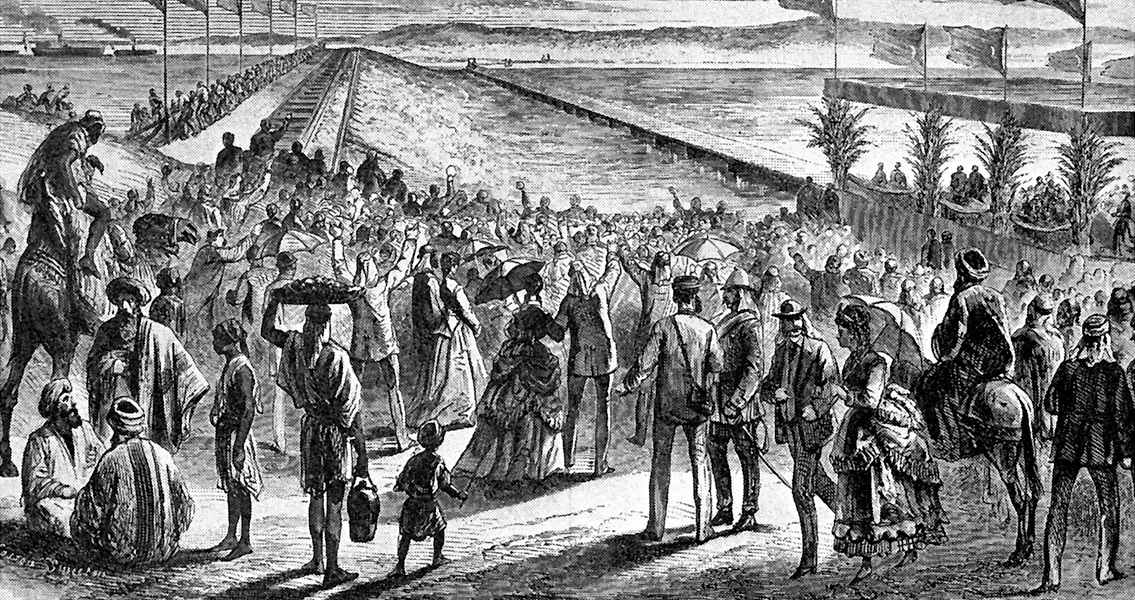<![CDATA[On 25th April, 1859, work started on the construction of the Suez Canal in Port Said, Egypt. Officially opened in November 1869, the 101 mile long canal is a vital trade route connecting the Mediterranean Sea to the Gulf of Suez in the Red Sea. The Suez Canal was not the first attempt in history to connect the Mediterranean to the Red Sea. Canals had been constructed in the area in the thirteenth century BCE. During the Ptolemaic period of Ancient Egypt, a series of canals were used to facilitate trade through Egypt, however, over the course of the next thousand years they gradually fell into disrepair or were destroyed in military conflicts. In the eighteenth century, during the French occupation of Egypt, Napoleon Bonaparte conducted an expedition to inspect several of the ancient canals. Napoleon concluded that building a canal in Suez would benefit France's growing empire, and give it a significant advantage over its biggest rival, Britain. Studies for the construction of a canal started in 1799, but miscalculations meant it was concluded that the differences in sea level between the Mediterranean and Red Sea were too large for a canal to be feasible. The pickaxe blow inaugurating the construction of the modern Suez Canal was delivered by Ferdinand de Lesseps, the French diplomat and engineer who had organised the massive project. In 1858, de Lesseps had convinced the Egyptian viceroy, Said Pasha, to support the construction of the canal on Egyptian territory. The Universal Suez Ship Canal Company was formed and given the rights to begin construction of the canal and operate it for 99 years, after which point it would come under the jurisdiction of the Egyptian government. When the canal opened some ten years later, its construction had cost $100 million. The creation of the canal triggered the growth of settlements around the area of Suez. Previous to the commencement of the project, the arid territory had been largely uninhabited, but following the start of the construction more than 70,000 acres of land were brought under cultivation. The Suez Canal had a dramatic impact on world trade, allowing goods to be shipped across the globe in record time. In 1888, an international convention made the canal available for use by ships from any country. In 1875, debt had forced the Egyptian government to sell its shares in the canal. At the instigation of British prime minister Benjamin Disraeli, the British government immediately swooped to gain a significant stake in the canal. In 1882, Britain invaded Egypt following a nationalist uprising in the country. Exact reasons for the British invasion are still debated, but it seems likely that protecting British interests in the canal was a key consideration. Events in 1882 triggered a long British occupation of the country. Even when Egypt was all but given independence in 1936, Britain maintained control of the canal. Throughout the twentieth century, conflicts over the use and control of the canal arose frequently, culminating in the Suez Crisis of 1956. A remarkable feat of engineering, the Suez canal, whose construction started in 1859, is still responsible for 8% of the world’s shipping, with 50 ships passing through it daily. ]]>
Work Starts on the Suez Canal
